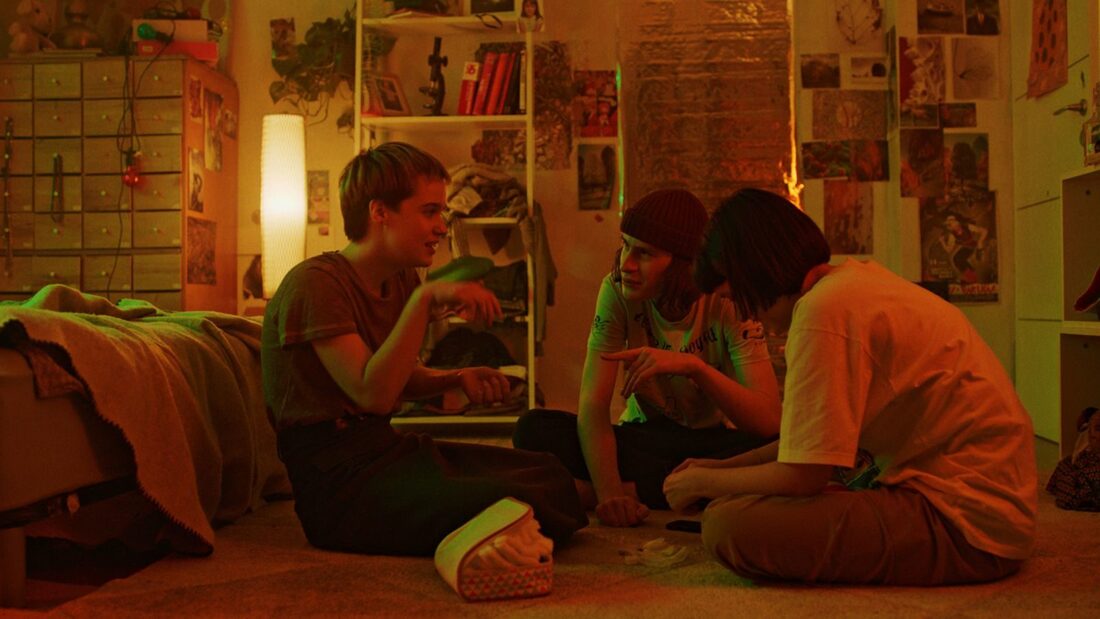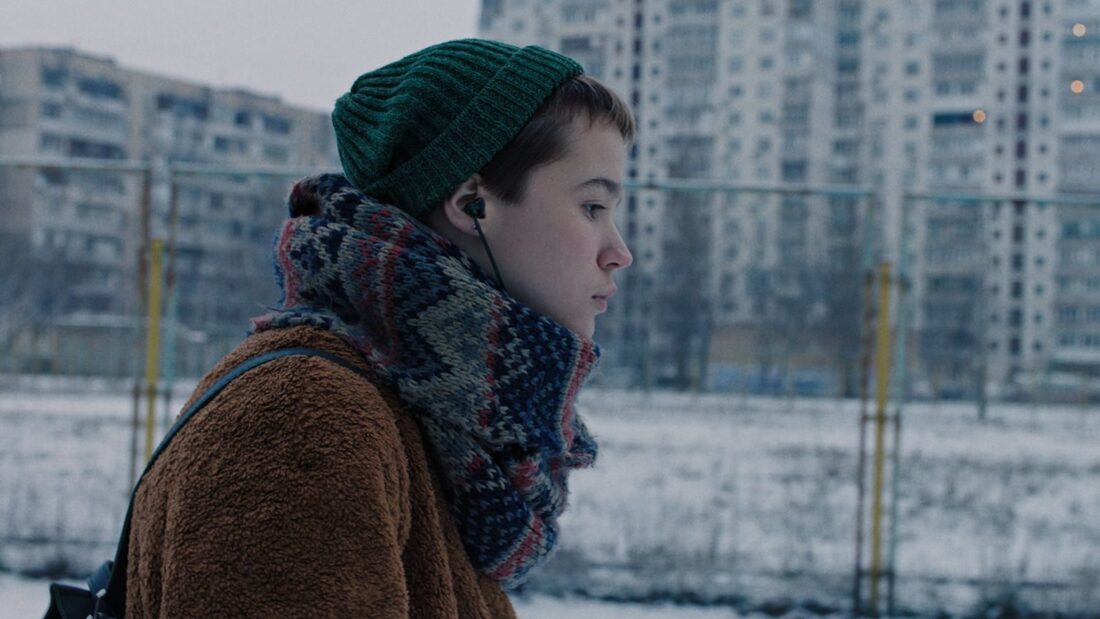|
A dreamy, plotless year in the life, Stop-Zemlia creates an otherworldly parallel reality of the end of adolescence, blending suspended fantasy of the teenage existence created by idealisation, and the near-documentary realism of its naturalistic structure, The Ukranian film is light on exposition, instead choosing a fluid approach to structure, blending past, present, and future in a thoroughly modern coming of age. Where the film falls short is not its lack of structure, but its lack of focus, flitting between a lot of serious mental health topics to the point it feels odd these are left unspoken. Masha (Maria Fedorchenko) is feeling every emotion all at once. She and her best friends Yana (Yana Isienko) and Senia (Arsenii Markov) often have sleepovers all sharing her bed, a natural closeness they don’t realize is going to leave their lives when they grow. Her attraction to Sasha (Oleksandr Ivanov), and a mysterious admirer on Instagram she often confesses to are both hard for her to define, and she is well aware of how messy feelings can be when young. While somewhat fiction, Stop-Zemlia more closely resembles Sébastien Lifshitz’s documentary Adolescentes than the early comparisons to Euphoria it has received. The non-professional actors lead these characters to be played just like teenagers living their lives, so the film feels documentarian as they’re hardly fiction. Of course, anything with teenagers, bisexuality, and pastel-llit parties tends to receive the latter analogue nowadays. Where the film falls short is that director Kateryna Gornostai has fallen in love with her characters deeper than we ever could. Though two hours is a short time to encapsulate a year of life, even at a time when growing up feels so hurried, this feels like nothing was cut from every idea for a scene that was thrown around. While some scenes — like a class of teenagers throwing bags and classroom things at one another, an exercise in waning childhood they only pretend is ironic — create atmosphere, other elements are remnants of an attachment to sequences we do not need.
The suspension of reality works best here to simulate what it feels like to be young, and to see yourself as a wild creature. The lights of a party strobe, bodies meld into each other, but this comes with an awareness that there is artifice in this indigo-dazed perfection. There is an idea that this is only some teenage dream, that their love can be so idealized, bodies never shallow but spouting poetics about kissing to the beat of the changing colors. What is present is that awareness that Stop-Zemlia is so often that fantasy you build of your teenage years, hormonal egos rushing to create that feeling of the mundane being on top of the world. It's refreshing how natural it feels, however, that the tougher parts of growing up are spoken of as jarringly casually as they are among peers. The films relaxed, ambiguous approach to queerness among girl friends is particularly well done as well. At one point, one of Masha’s classmates says “I just like feeling things, it’s better than feeling nothing,” which just about defines the everything at once scattershot approach and energy that Stop-Zemlia has. Stop-Zemlia is screening at the Berlinale Summer Special which runs June 9-20. Rating: 3/5
0 Comments
Leave a Reply. |
Archives
May 2024
Authors
All
|
|
|
disappointment media
Dedicated to unique and diverse perspectives on cinema! |


